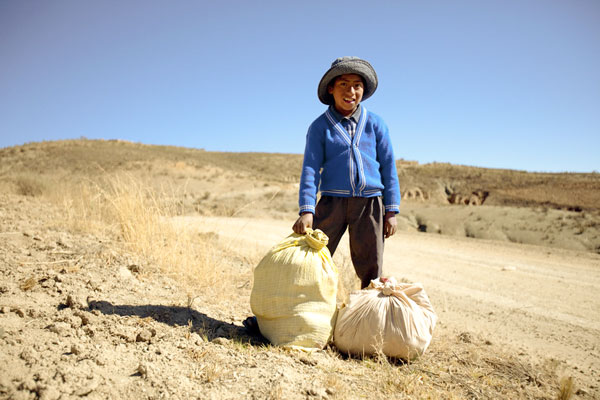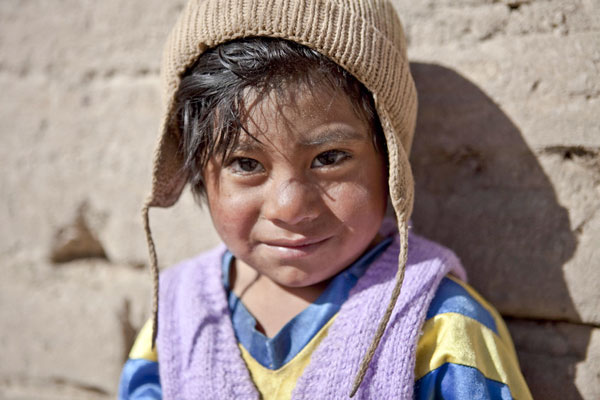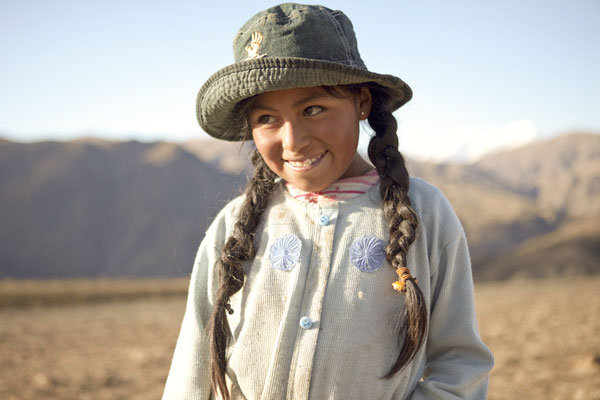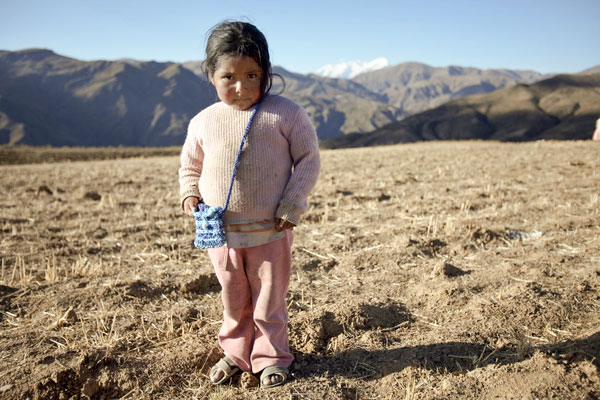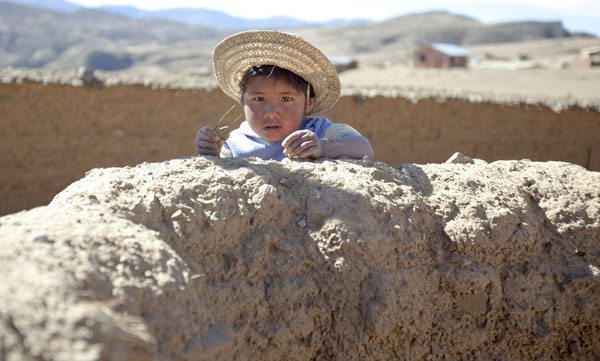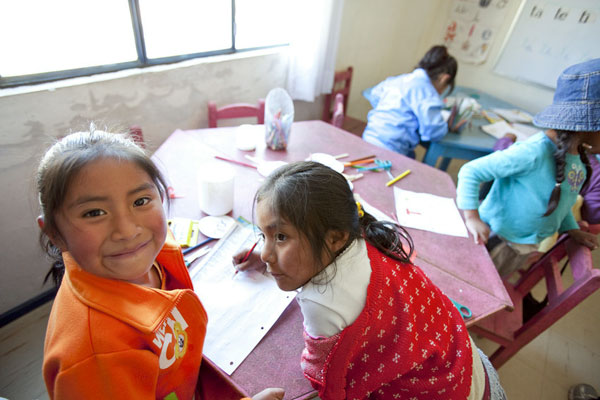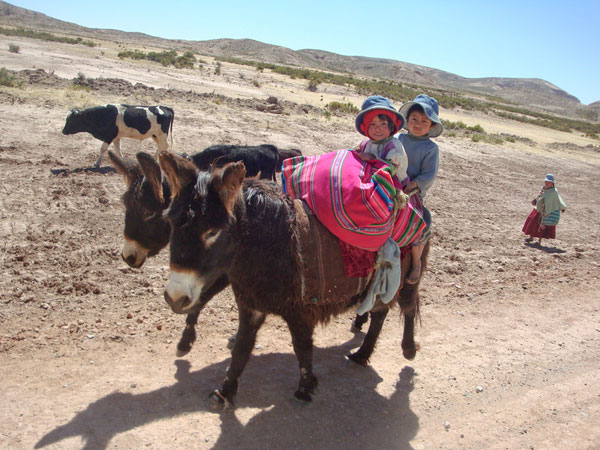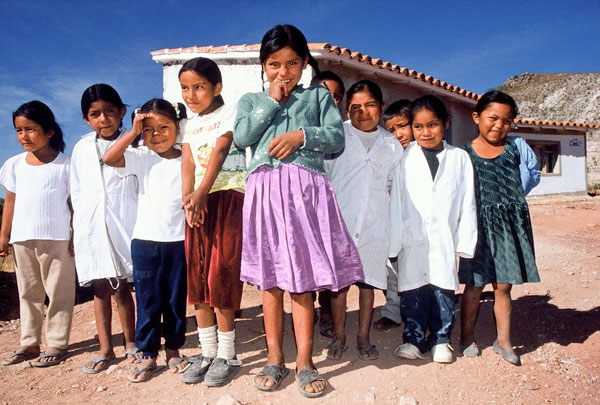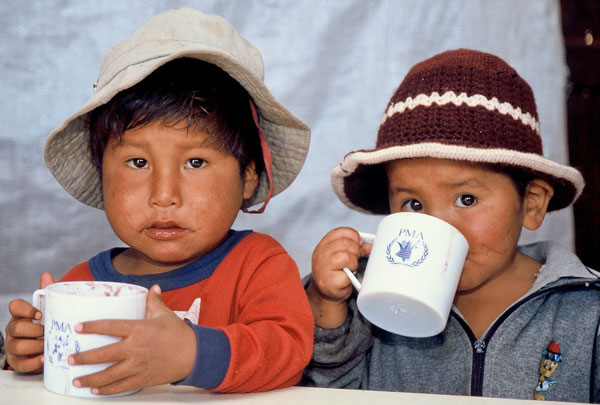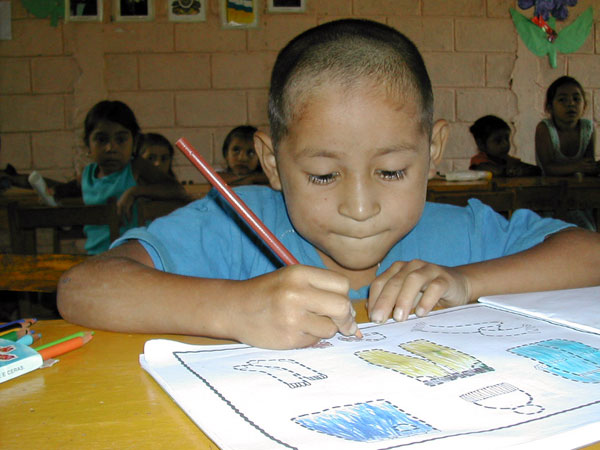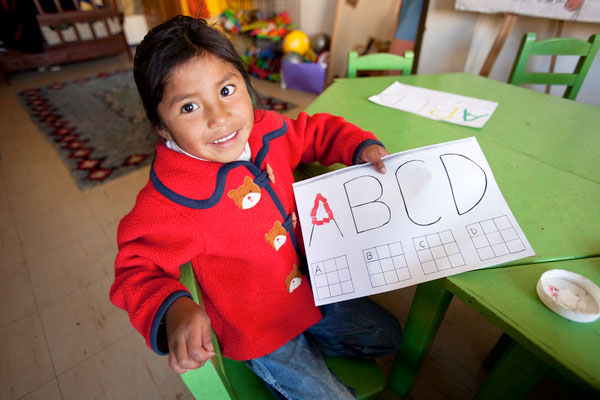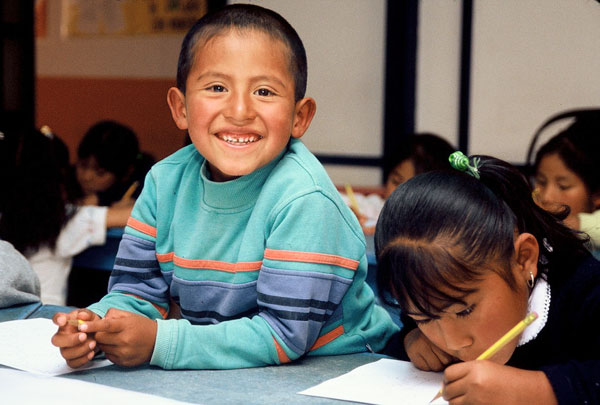
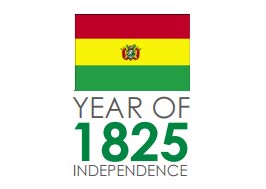
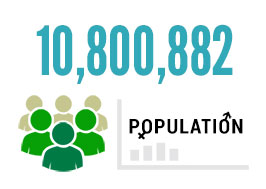
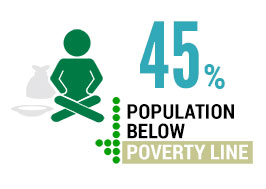
The rich culture of Bolivia and its indigenous peoples are world-renowned, but, the Bolivian economy is also one of South America’s poorest. The relationship between ethnicity and poverty in Bolivia is strong. Indigenous groups are often marginalized and do not have easy access to education and health care because of geographic, cultural, language and economic barriers. Without convenient access to basic services, children under the age of 5 are vulnerable to deadly illnesses and malnutrition, and older children must travel long distances to reach school. Chauvinistic attitudes hamper the rights of women and girls in school, the workplace and at home. In some cases, they lead to violence.
ChildFund has served children in Bolivia since 1979. Help make a difference and sponsor a child in Bolivia today.
Ages 0 - 5: Healthy and Secure
Healthy mothers have healthier babies, but Bolivia has a high maternal mortality rate, with 200 deaths per 100,000 live births. The country also records 39 child deaths per 1,000 live births. To bring down these rates, ChildFund Bolivia and our local partners have signed agreements with governmental agencies to deliver high-quality maternal and neonatal care. Community health volunteers educate families how to prevent life-threatening illnesses that are the main causes of death of young children. Volunteers are also trained to recognize danger signs so that children can be referred to the formal health system in time for treatment.
ChildFund Bolivia’s early childhood development programs complement its efforts by helping parents learn about healthcare, nutrition and food preparation, beginning with breastfeeding. Early Childhood Development centers, which are designed specifically for preschool-aged children, offer workshops for parents about child development and rely on their participation to run the centers.
Ages 6 - 14: Educated and Confident
Once children enter formal education in Bolivia, they continue to benefit from after-school programs in ChildFund-supported community centers that offer academic support, leadership training and other educational opportunities. In 2016, ChildFund Bolivia is planning a traveling workshop to help improve children’s math skills. Children will be able to use tablets to access a free online course, and educators will provide help and support during the workshop.
Ages 15 - 24: Skilled and Involved
Bolivian youth have taken a strong stance against violence in their communities. In their youth groups, teens diagnose their neighborhoods’ problems — such as crime, litter and alcohol abuse — and then discuss how to solve these issues. Once they’ve determined possible solutions, they receive small financial grants to create practical responses and work with local authorities. In the community of Oruro, youth tackled the problem of pollution and created the “Piggy” character to educate people about keeping streets clean. The initiative was successful and even captured the attention of a local TV news show. Youth also are exploring solutions to domestic, school and community violence in their groups.
Water Scarcity and the Bolivia Water War
The so-called Bolivia Water War took place in the arid city of Cochabamba in 2000 after privatization of municipal water services caused a dramatic rise in monthly water costs. Protests caused the overturn of the contract, but many problems exist in Cochabamba and other communities that lack clean water.
The contract was overturned after months of protest, but many issues still remain. Water is so scarce in Cochabamba that growing food is nearly impossible, and parts of the city lack electricity and running water. The effects of climate change are exacerbating the water crisis as increased droughts put pressure on the agricultural economy. As a result, the rural population is displaced to urban areas where water and sanitation infrastructure is already under much stress. The state of Bolivia’s infrastructure is so poor that only 27 percent of the population has adequate access to sanitation facilities, second-worst in the Americas region, after Haiti.
ChildFund partners with local Cochabamba group Obispo Anaya to provide families access to purified water as well as several educational initiatives to teach people about responsible water usage and conservation. Another focus of our partnership is improving access to sanitation facilities. With a grant, ChildFund Bolivia has built five water systems in 12 rural communities near La Paz, providing clean water to 2,000 people and bathrooms in schools for 1,500 children. While access to water and sanitation has improved significantly since the Bolivian Water War, many people still do not have adequate access to either. To help improve these conditions, please consider donating to our Essentials for Survival.

